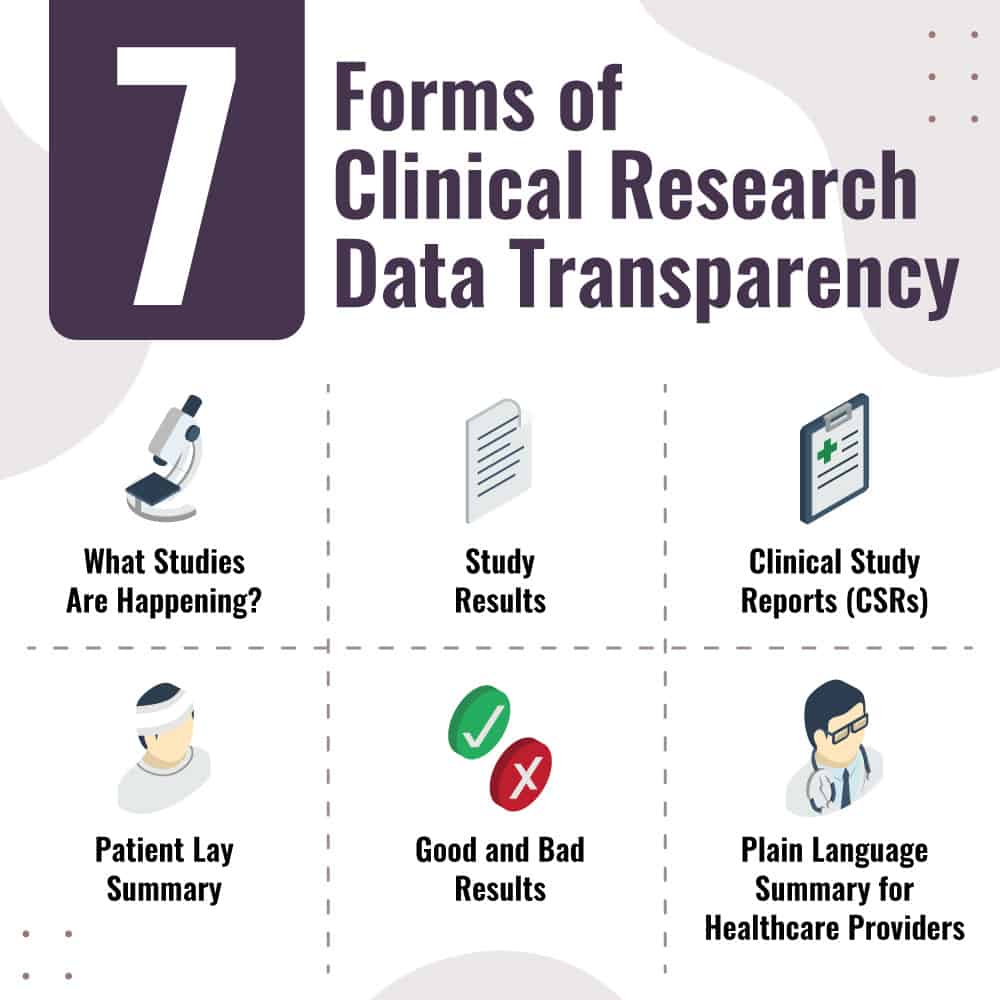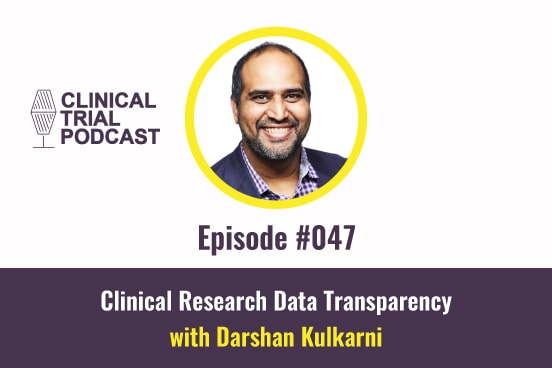Who owns the clinical trial data generated in industry sponsored or investigator initiated clinical trials?
What responsibilities do Sponsors, CROs, or Sites have when it comes to sharing clinical trial results with patients?
Should a Sponsor get access to patient data collected outside a clinical trial setting?
To answer these questions and more, I invited Darshan Kulkarni to the show.
Darshan is a regulatory attorney specializing in FDA law, professor, author, and speaker.
He is currently the Principal Attorney of Kulkarni Law Firm where he focuses his practice on providing healthcare companies with legal, compliance, and regulatory advice.
Darshan has led rare disease pharmaceutical companies in developing global programs to foster clinical trial transparency and enhance public health.
He serves on the editorial board for Applied Clinical Trials at Advanstar Communications serving as a legal advisor on the clinical trial industry.
Previously, Darshan was on the editorial board of cosmetics and personal products for FDAnews where guided the publication with his clinical trial and pharmaceutical expertise.
Last but not the least he is the host of the DarshanTalks livestream interviews where he discusses issues that impact the life science industry.
Connect with Darshan – LinkedIn, Twitter, YouTube, Website
Sponsor:
This podcast is brought to you by Florence Healthcare. More than 10,000 study sites, sponsors, and CROs in 44 countries trust them to accelerate their operations. To learn more, visit https://florencehc.com/
Data is the new gold, data is the new oil. The more you have it, the more valuable it is – Darshan Kulkarni, Attorney and Podcast Host
Selected Links From The Episode:
EU General Data Protection Regulation (GDPR)
California Consumer Privacy Act (CCPA)
Policy 70 – Publication of clinical data for medicinal products for human use
Policy 43 – Access to Documents
Health Canada – Drugs and health products acts and regulations
Health Canada – Regulatory transparency and openness
FDA Transparency Initiative Overview
Health Insurance Portability and Accountability Act (HIPAA)
New England Journal of Medicine
FDA – Office of Regulatory Affairs – Freedom of Information Act (FIOA) Reading Room
Health Care Compliance Association Journal
Show Notes:
[4:57] Clinical research data transparency is not about who owns the data. Instead it focuses on who gave the data i.e. the patient and the access to this data (similar to GDPR).
[7:16] 7 Forms of Clinical Research Data Transparency
- Clinicaltrials.gov website provides knowledge about what studies are happening
- Clinicaltrials.gov website provides results from the above mention studies
- Patients provide valuable data. If you strip away patient identifying information, you end up with raw data. This was required by the European Union (EU) under policy 70 and policy 43
- Governments are now requiring Clinical Study Reports (CSR) to be made transparent – redact patient private information and company confidential information
- Data needs to be understandable. This led to Patient Lay Summaries, also known as Plain Language Summaries. Taking complex study language and simplifying it for the patients
- Regulators want both good and bad results to be shared with the public
- Similar to plain language summaries for patients, there is a need for simplified information for healthcare providers
[14:27] Kunal’s thoughts on why data ownership language in a Clinical Trial Agreement (CTA) may be useless
- If every site contract is negotiated differently, it becomes increasingly difficult to go back retrospectively to understand what was agreed with each site as it relates to data ownership
- Likelihood of sponsors going back into the data for new commercial opportunities is generally low
- Clinical research data transparency context – i.e. sponsors have “access” to the data, but do they “own” the data?
[14:49] Darshan’s thoughts on what data “ownership” allows an organization to do?
- One of the uses of ownership is to restrict access to the data. Another one is the use of ownership is to actually say “you can’t use the data”. This is similar to patent ownership.
- No sponsor is willing to concede that they don’t own the actual intellectual property
[18:28] Can we use data for things that were not contemplated at the time of the agreement?
[19:14] Future of clinical trial agreements with smart contracts, blockchain, machine learning, and artificial intelligence
[20:10] Per EU GDPR, you need to have a reason why you’re collecting data, you need to disclose the reason that reason upfront. The moment that reason is done with, you need to get rid of that data, because you don’t have rights to it.
[22:55] This podcast is brought to you by Florence Healthcare.
Florence eliminates chaotic workflows in clinical research operations with remote access and digital workflow platforms. More than 10,000 study sites, sponsors, and CROs in 44 countries trust them to accelerate their operations. To learn more, visit https://florencehc.com
[23:56] Learning about global health privacy laws and regulations
[25:06] HIPAA – Your information won’t be told to people who shouldn’t know it
[25:25] HIPAA considerations for clinical research professionals
- Just because the data includes patient health information (PHI), it is not necessarily subject to HIPAA. If data comes from a covered entity (CE), it may likely be subject to HIPAA.
- Different schools of thought on whether data from clinical research is subject to HIPAA
- Balance of transparency and privacy
[27:15] What is HIPAA-compliant software?
- HIPAA helps ensure your information won’t go to the wrong people
- For example, you can have the most secure system in the world but a terrible password policy. Technology in and by itself is not sufficient.
- Your policy, SOP, training, audit all need to be considered
[28:44] Sections in the clinical trial agreement (CTA) that Darshan finds himself redlining
- Most contracts don’t get into transparency
[31:19] Goal of clinical data transparency is to help patients
- The reason you’re in clinical research is to make people’s lives easier to help patients benefit
- Start with patient centricity. Clinical trial data transparency and compliance will be a byproduct
- If you start with what is the minimum I need to do to meet these requirements, you aren’t necessarily going to meet the goals of meeting a patient’s needs
[32:43] Should the sponsor put all the site information on clinicaltrials.gov? Does it matter if competitors see where you’re conducting clinical trials?
- Leveraging clinical trial agreement (CTA) to prevent sites on taking on competing trials and unique access to patient
- Framing information in clinicaltrials.gov
- Being specific about what you’re recruiting patients
Only about 3% of physicians are participating in clinical research and these numbers are constantly changing
[37:32] Looks at publications (literature) from previous studies and check the appendix section for list of sites that participated in that study








